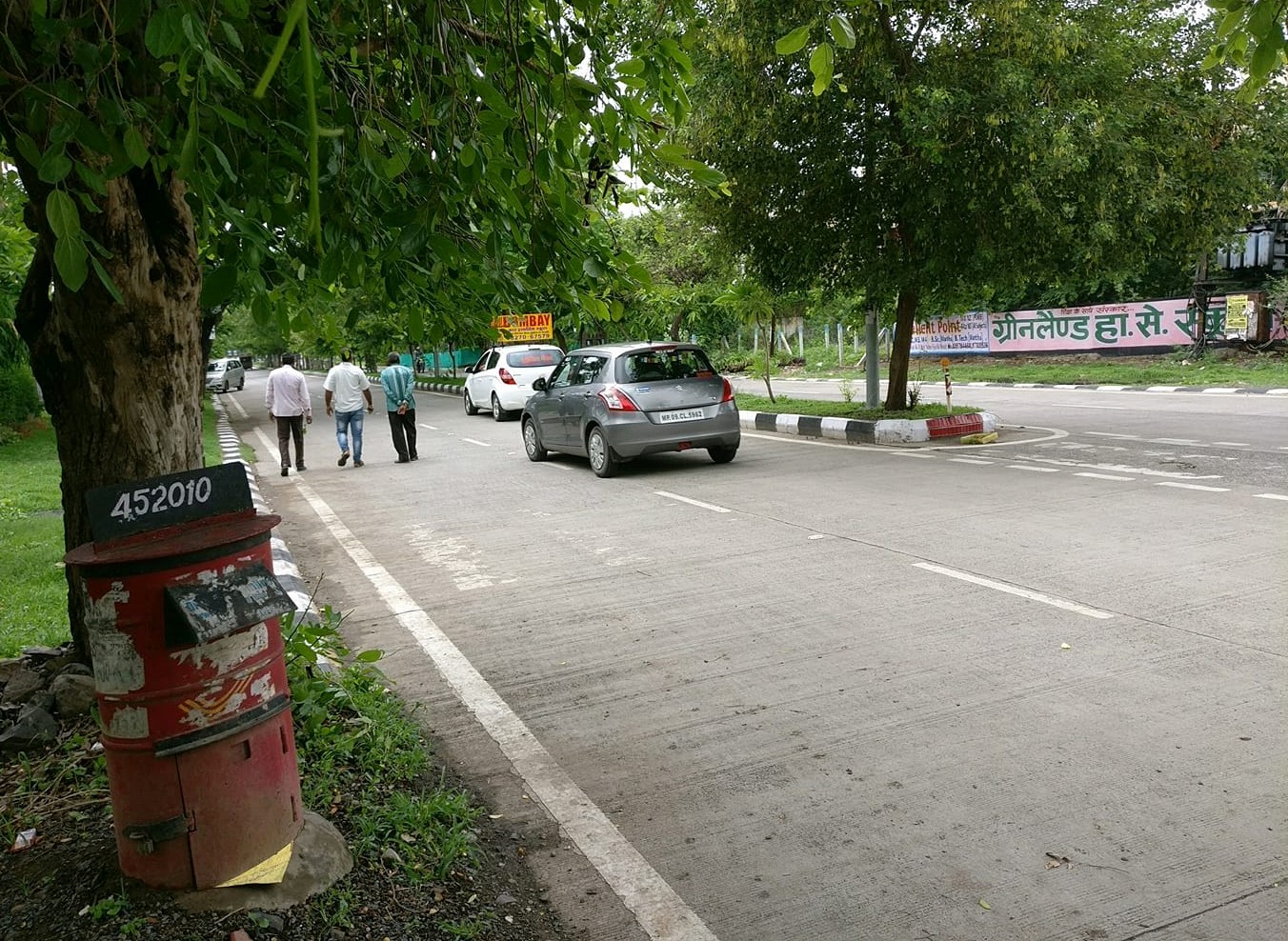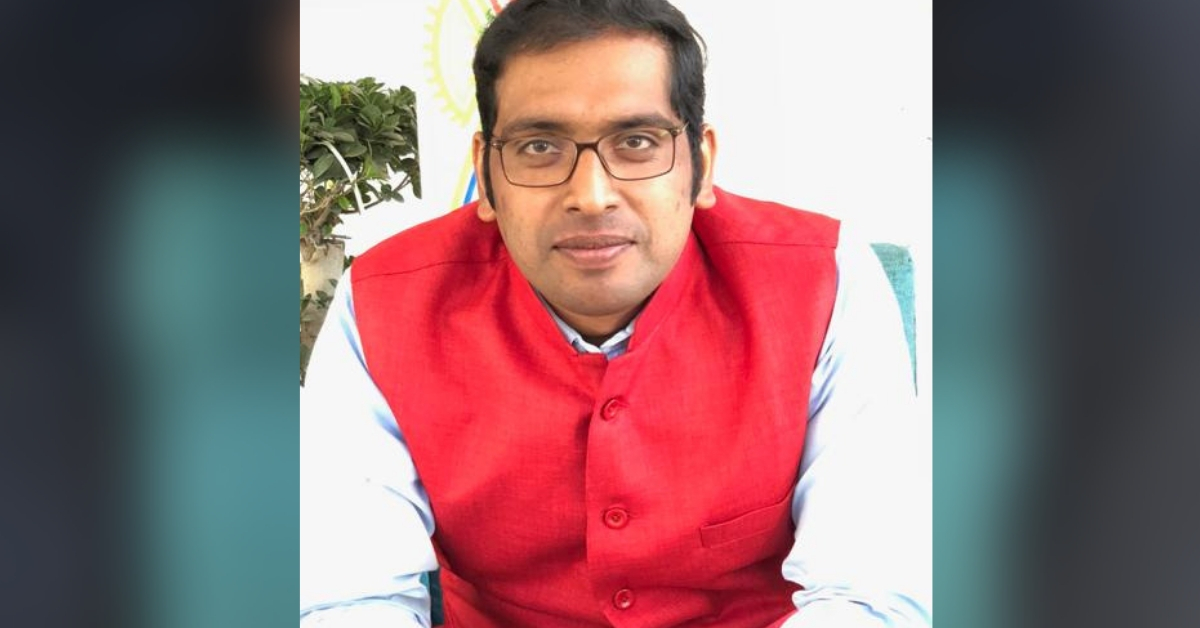What Does an IAS Officer Do in a Day? TBI Spoke to Indore’s Municipal Commissioner to Find Out!
The Better India (TBI) spoke to Asheesh Singh (IAS, 2010 batch/Madhya Pradesh Cadre), the Municipal Commissioner of Indore, about the responsibilities he carries out on any given day.

Uneasy lies the head that wears the crown . . . went the Bard, describing in one sentence, how a position of power brings with it a great many responsibilities.
Undoubtedly, the Indian Administrative Services (IAS) is one of the most coveted jobs in the country.
For IAS officers, after slogging through the exhaustive selection process, the real test begins upon getting appointed to their respective posts.
They are responsible for collecting revenues, maintaining law and order, supervising the implementation of State policies and addressing public grievances among many other duties.
We read stories of IAS officers going above and beyond their responsibilities to make the towns and cities under their jurisdiction, a better place.
Some of us, at times, may wonder what it would be like to live the life of an IAS officer. How does their day pass?
The Better India spoke to Asheesh Singh (IAS, 2010 batch/Madhya Pradesh Cadre), the Municipal Commissioner of Indore, about the responsibilities he carries out on any given day.
Singh is responsible for clearing out 13 lakh tons of garbage from a 100-acre dumpsite in the commercial capital of Madhya Pradesh. He did it within six months and his story is truly inspirational. You can read it in detail here.

The administrative responsibilities, on a typical day, differ from post to post.
Here is what a normal day, for Singh, looks like:
As taking a round of the city under their command is one of the most important duties, Singh’s morning city-round starts at 6.30 AM and goes on till around 10.30–11 AM.
“Important municipal services like cleaning and water supply begin early. For effective control over it, you have to be in the field in the morning,” he told TBI, adding, “During the morning tour, I also monitor other projects like SMART city, Atal Mission for Rejuvenation and Urban Transformation (AMRUT) mission, Pradhan Mantri Awas Yojana (PMAY) and other construction activities on the field.”
The morning is reserved strictly to oversee how these projects that impact the life of common citizens, are working out. Singh, and officers that hold positions like him, need to check up on the progress and issues of such projects regularly, lest they face huge obstacles and affect the services to the common man.
When the morning tour ends, Singh comes back home to get ready for office which he does by 12 noon and his meetings with the media and aggrieved citizens are scheduled to start almost immediately.
“The first two hours are dedicated for meeting the common public and media persons.

After 2 PM, meetings for various departments take place. Meetings along with important discussions on strategies, tender documents and issues get over around 7.30–8 PM,” Singh said.
No two duties are exactly the same. Monitoring of government projects like the Smart City mission or AMRUT, for example, requires different kinds of expertise.
Smart city, for example, focuses on the citizen friendliness and sustainability while the latter was started to warrant robust sewage networks, water supply etc.
In the first place, the implementation of these projects is challenging, and secondly, the municipal corporations must keep themselves updated on their progress at all times.
But that is not all. “Holidays and Sundays are dedicated for very important and strategic meetings because people’s pressure on these days is limited. I receive approximately 200 phone calls daily and have to attend most of them,” Singh adds.
Issues related to infrastructure, society and even politics are addressed in these meetings while the common man asks him questions that concern them on a personal level.

“Certificates of birth, and marriage, drinking water, sewage, roads, gardens, garbage, encroachment removal and management of traffic are the main issues,” he informs TBI.
But surely, the long hours that municipal commissioners endure every day must come with their fair share of stress and frustration. How does one handle that?
You may also like: Exclusive: Inside the 90-YO Mussoorie Dhaba That Has Fed Generations of India’s IAS Officers
“Stress management is a very personalised thing. People do in different ways. For me, it’s the fire and forget approach, which works. Issues come, I address them and forget about them after addressing. Avoiding overthinking makes it easier,” Singh and adds, “I am fond of Urdu poetry and movies. When I get time, I read Urdu poetry on Rekhta or watch videos on YouTube. I also watch one or two movies in a month in a cinema hall.”
Singh also said that he tries to resolve the issues that come up within the prescribed time rather than let them pile up.
The strategy is not just about getting done and over with an issue in time so they become less of a burden for the administrative authorities, but to find time to work for the people.

“As an officer, one must understand that we are working for the people,” Singh explains. “We are here to bridge the gap between people’s needs and administrative working. We cannot act in a vacuum. People’s needs and complaints are paramount.”
Singh’s initiative in clearing a landfill within six months is, perhaps, the perfect example of using authoritative powers to the service of the common man. He plans to convert the dumping ground into a city forest so that in the coming few years, the people of Indore can benefit from the green lungs of the city.
But Singh is determined to not let this project be his only legacy.
You may also like: Groundnuts to Blood Tests: IAS Officer’s Unique Initiatives Transform Telangana District!
“As an IAS officer, I always aspire to be a better officer than I am at the present moment so that I can serve my country better. We work in a variety of fields so we have to keep up with that and need to acquire knowledge of that field very fast,” he concludes.
There is a reason why IAS officers are called public servants. For Singh, his day begins and ends with the people whose welfare he has been entrusted with. The purpose of this article is to highlight the work that public servants do in the course of a day.
TBI is in conversation with more such officers who are actively working and bringing positive change in the rural and urban parts of India.
Stay tuned!
(Edited by Saiqua Sultan)
Like this story? Or have something to share? Write to us: [email protected], or connect with us on Facebook and Twitter.
If you found our stories insightful, informative, or even just enjoyable, we invite you to consider making a voluntary payment to support the work we do at The Better India. Your contribution helps us continue producing quality content that educates, inspires, and drives positive change.
Choose one of the payment options below for your contribution-
By paying for the stories you value, you directly contribute to sustaining our efforts focused on making a difference in the world. Together, let’s ensure that impactful stories continue to be told and shared, enriching lives and communities alike.
Thank you for your support. Here are some frequently asked questions you might find helpful to know why you are contributing?


This story made me
-
97
-
121
-
89
-
167













